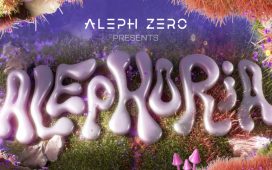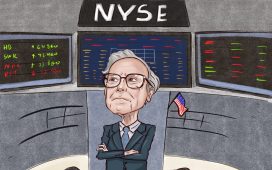Stay informed with free updates
Simply sign up to the Exchange traded funds myFT Digest — delivered directly to your inbox.
Latest news on ETFs
Visit our ETF Hub to find out more and to explore our in-depth data and comparison tools
A US hedge fund manager has taken the rare step of launching an exchange traded fund in a move that could herald a broader move by the asset class into the booming active ETF market.
Tremblant Capital, which was founded by Brett Barakett in 2001 and has roughly $1bn in assets under management, plans to launch the Tremblant Global ETF (TOGA), a concentrated, long-only portfolio with about 40 holdings.
The ETF is a conversion of the firm’s Tremblant Tax Efficient Fund, which launched in August 2022, according to a filing with the Securities and Exchange Commission, and generated a return before tax of 36.2 per cent in 2023.
Investors in the ETF will incur management fees of 0.69 per cent, which is much lower than the fee hedge funds would generally charge investors for a similar strategy. They will also benefit from a tax advantage that ETF investors enjoy in the US over other fund structures and better liquidity than hedge funds.
Investors are becoming increasingly sensitive to fees and while the predominantly low-cost ETF industry pulled in about $940bn in 2023, the global hedge fund industry has suffered, losing $105bn to outflows last year and nearly $26bn more in the first quarter of 2024, according to data from ETFGI and Nasdaq eVestment.
Hedge fund managers have historically made their fortunes charging a 2 and 20 fee structure consisting of a management fee of 2 per cent of total assets and a 20 per cent performance fee on profits above defined thresholds.
In contrast, the average fee for an actively managed ETF in the US is 0.65 per cent, according to Morningstar.
Tremblant declined to disclose its exact former fee structure, but 2 and 20 fees are not generally applied to long-only funds and a fund industry executive with knowledge of the Tremblant fund before the conversion said it would have charged management fees between 1 per cent and 1.5 per cent, with potentially lower fee amounts for larger size allocations.
Barakett told the Financial Times that he was launching the ETF primarily as a way to achieve preferable tax treatment for his own money and that of some of his clients, as ETFs offer not only offer greater liquidity but also the ability for investors to defer capital gains tax bills indefinitely.
He said he expected other hedge funds to follow suit, offering retail investors the ability to access investment strategies that traditionally have been restricted to very wealthy and sophisticated clients.
It could also mean that hedge funds stand to gain from a historic run in which investors have pumped record sums into active ETFs, including more than $65bn in the first three months of 2024.
“The red velvet rope is now going away,” Barakett said, referring to the sort of barrier that might block the doorway of an exclusive club. He added that he expected large asset allocators to start insisting that hedge fund managers launch ETFs of their own. “They will follow. We’re not the only commercially oriented animals.”
While billionaire hedge fund manager Bill Ackman recently disclosed plans to launch a closed-end fund and Warren Buffett disciple Mohnish Pabrai last year launched a mutual fund, hedge funds are not yet big players in the US ETF scene.
TOGA will join a select grouping of US ETFs launched by hedge funds. Data providers could not immediately provide a full tally, but such ETFs include offerings from well-known names such as Gotham Asset Management, Chesapeake Capital Management and Ionic Capital Management. London-based hedge fund Man Group’s AHL subsidiary has run a managed futures strategy for an American Beacon ETF since 2014.
The trend could gain momentum if ETF versions of hedge fund strategies take off with investors, said Douglas Yones, head of exchange traded products at the New York Stock Exchange.
“I don’t think this is a short-term flash in the pan,” Yones said, adding that hedge funds would enjoy any assets they draw from outside their clientele as a bonus: “That’s just extra benefit. It’s not like their business plan requires new asset gathering from an audience they don’t know of.”
Latest news on ETFs

Visit the ETF Hub to find out more and to explore our in-depth data and comparison tools helping you to understand everything from performance to ESG ratings
Ted Seides, an industry pundit who was co-founder of alternative investment firm Protégé Partners, said he knew of at least two other hedge fund managers that were planning to enter the ETF market.
“I think that this could be the very very beginning of a wave of very high-quality products that are more accessible than they were in the past,” Seides said.
Maurits Pot, founder and chief executive of fund platform Tema ETFs, said his company was still looking to attract a big hedge fund name, adding that “Ackman would have been the ideal ETF candidate”.
“There’s a lot of hedge funds that say ‘I don’t want to grow, I’m very happy being whatever my size is, I’ll charge my high fees and just stay there’,” Pot said. “But for guys who want to grow assets, I think they see there’s just a huge pool of assets in retail and they cannot access them with hedge funds. ETFs are maybe not the best, but the best available option of what’s out there right now.”
Ackman’s Pershing Square Capital Management declined to comment.




